Animal News

1. International Poultry Expo (IPEX) 2026 – Pakistan’s Premier Poultry Industry Gathering
The International Poultry Expo (IPEX) 2026, organized by the Pakistan Poultry Association, will be held from October 8–10 at the Pakistan Expo Center in Lahore. As the largest poultry event in Pakistan, IPEX 2026 is set to bring together over 173 exhibitors across 12,000+ square meters of exhibition space, attracting more than 100,000 visitors and featuring participation from 50+ international companies. This flagship expo serves as a vital platform connecting industry leaders, businesses, and professionals from the poultry, feed, medicine, and allied sectors worldwide. Attendees will have the opportunity to explore the latest innovations, technologies, and products driving the future of poultry farming and processing. Whether you are looking to network, source cutting-edge solutions, or gain industry insights, IPEX 2026 offers an unmatched environment for growth and collaboration. For exhibition and branding inquiries, contact 0325-6663333, 0325-8883333, or 0326-8463786.
PDF Attached

2. Shape Pakistan's Future
Development Fellows Program *Shape Pakistan's Future: Join the Elite Young Development Fellows Program* Calling Pakistan’s top young talent! The Planning Commission invites ambitious individuals (18–30) with a Master’s degree and a minimum GPA of 3.2 to apply for the prestigious *Young Development Fellows (YDF)* program under *URAAN Pakistan*. This one-year, highly competitive fellowship places you at the core of national policy-making, working directly with senior leaders. Gain hands-on experience in critical fields like *AI, Public Policy, Energy, Water Resources, Data Analytics, Urban Planning, and more. Fellows receive a **monthly stipend of PKR 90,000* and contribute to projects driving Pakistan’s sustainable development and economic growth. If you are ready to lead, innovate, and shape the nation’s future, apply within 15 days via courier using the prescribed form, along with your CV and attested documents. Be the change.
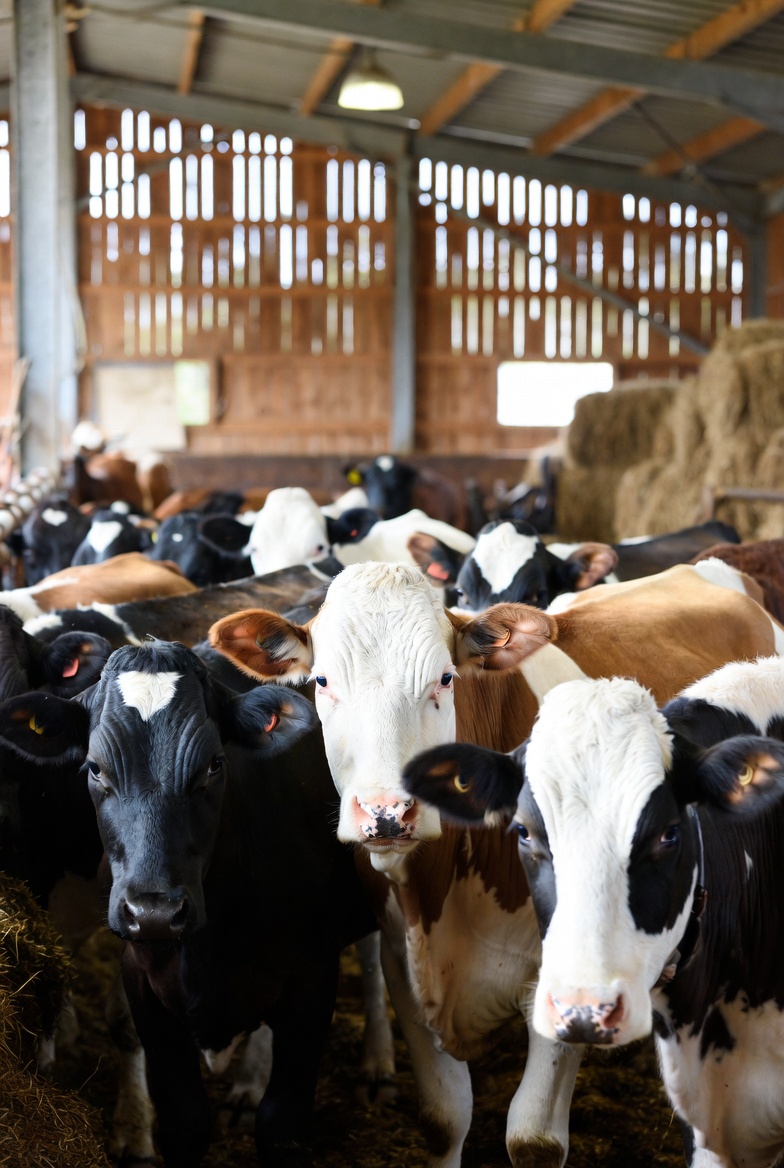
3. ABS Sire List 2025–26: Powering the Future of Dairy Genetics
The **ABS Sire List 2025–26** represents the next generation of elite dairy genetics, carefully selected to help progressive dairy farmers achieve higher productivity, stronger herd health, and long-term profitability. This comprehensive lineup showcases world-class Holstein sires from ABS Global, combining proven performance with cutting-edge genomic excellence. Each sire featured in the 2025–26 list is evaluated on a complete genetic profile, including milk yield, fat and protein percentages, fertility, longevity, calving ease, and functional conformation. With leading indicators such as **TPI®, NM$, CM$, GM$, and FM$**, the list empowers breeders to make data-driven decisions aligned with modern dairy goals—whether maximizing lifetime profit, improving reproductive efficiency, or strengthening udder and leg structure. A strong focus on **health and sustainability traits** sets this sire list apart. Superior scores for Productive Life (PL), Daughter Pregnancy Rate (DPR), Somatic Cell Score (SCS), and Livability (LIV) ensure healthier cows that stay productive longer. Many sires also carry **A2/A2 beta-casein** and favorable **kappa-casein** variants, supporting premium milk programs and value-added dairy markets. From high-reliability proven sires with thousands of daughters to exciting young genomic bulls with exceptional potential, the ABS Sire List 2025–26 offers solutions for every breeding strategy. Whether the objective is rapid genetic gain, balanced performance, or specialized mating plans, this catalog provides trusted options backed by rigorous data and global expertise. In a rapidly evolving dairy industry, genetic decisions made today define herd success tomorrow. The **ABS Sire List 2025–26** is more than a catalog—it is a strategic tool designed to help dairy producers build resilient, efficient, and profitable herds for the future.
PDF Attached

4. Happy Birthday, Quaid-e-Azam Muhammad Ali Jinnah! 🇵🇰
We remember and honor the Father of the Nation for his unwavering leadership, integrity, and vision that led to the creation of Pakistan. His principles of Unity, Faith, and Discipline continue to guide us toward a stronger, just, and prosperous nation. “With faith, discipline and selfless devotion to duty, there is nothing worthwhile that you cannot achieve.”
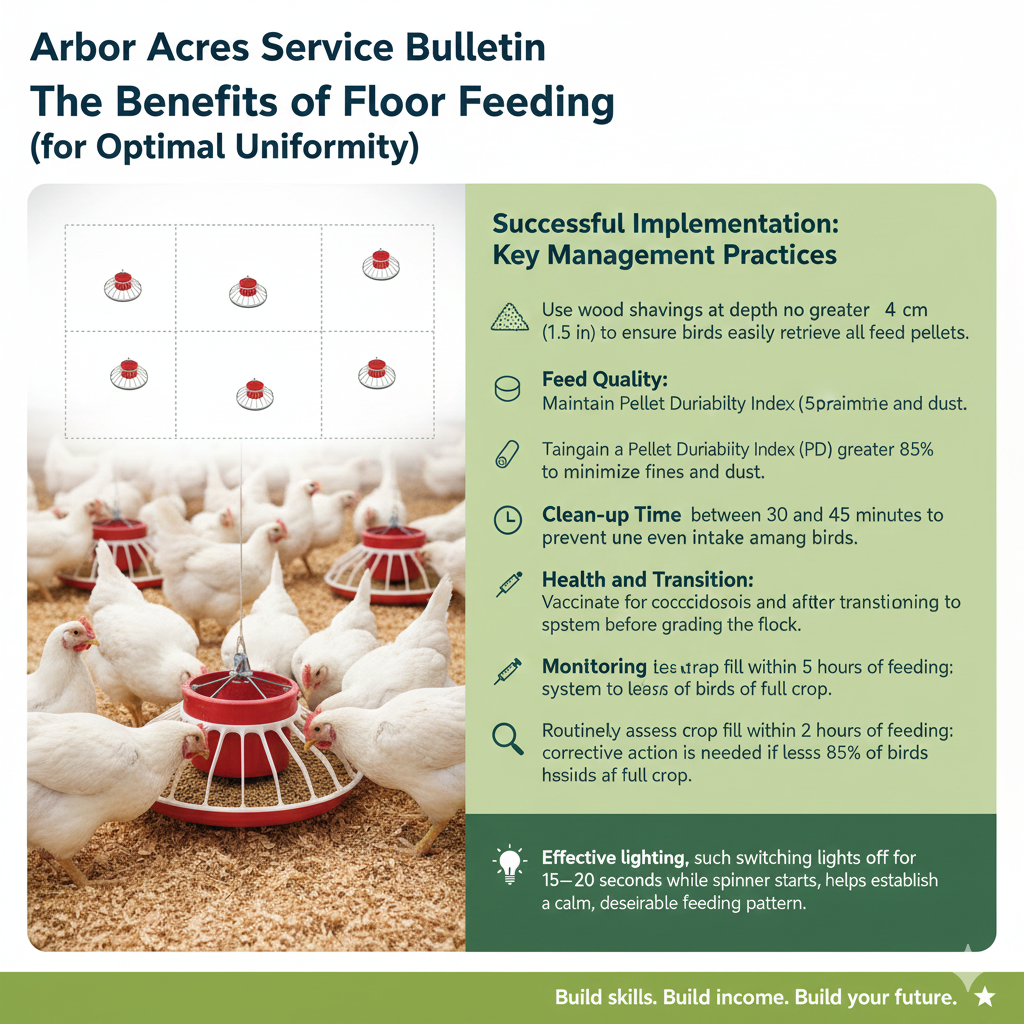
5. Arbor Acres Service Bulletin: The Benefits of Floor Feeding (for Optimal Uniformity)
Floor feeding via spin feeders offers significant advantages for bird welfare and performance by encouraging natural foraging behaviors and allowing for increased population density. To achieve optimal flock uniformity, these systems require precise management of equipment layout, litter quality, and feed texture. Houses should ideally be divided into square pens with a single, centrally located spin feeder to ensure even distribution. Maximum recommended bird populations per feeder are 1,500 females or 1,000 males. Successful implementation relies on the following key management practices: Litter and Equipment: Use wood shavings at a depth no greater than 4 cm (1.5 in) to ensure birds can easily retrieve all feed pellets. Feed Quality: Maintain a Pellet Durability Index (PDI) greater than 85% to minimize fines and dust. Clean-up Time: Target a duration between 30 and 45 minutes to prevent uneven intake among birds. Health and Transition: Vaccinate for coccidiosis and wait at least 5 days after transitioning to the spin system before grading the flock. Monitoring: Routinely assess crop fill within 2 hours of feeding; corrective action is needed if less than 85% of birds have a full crop. Effective lighting, such as switching lights off for 15–20 seconds while the spinner starts, helps establish a calm, desirable feeding pattern. By adhering to these guidelines, producers can optimize bird density while maintaining high performance and welfare standards.
PDF Attached
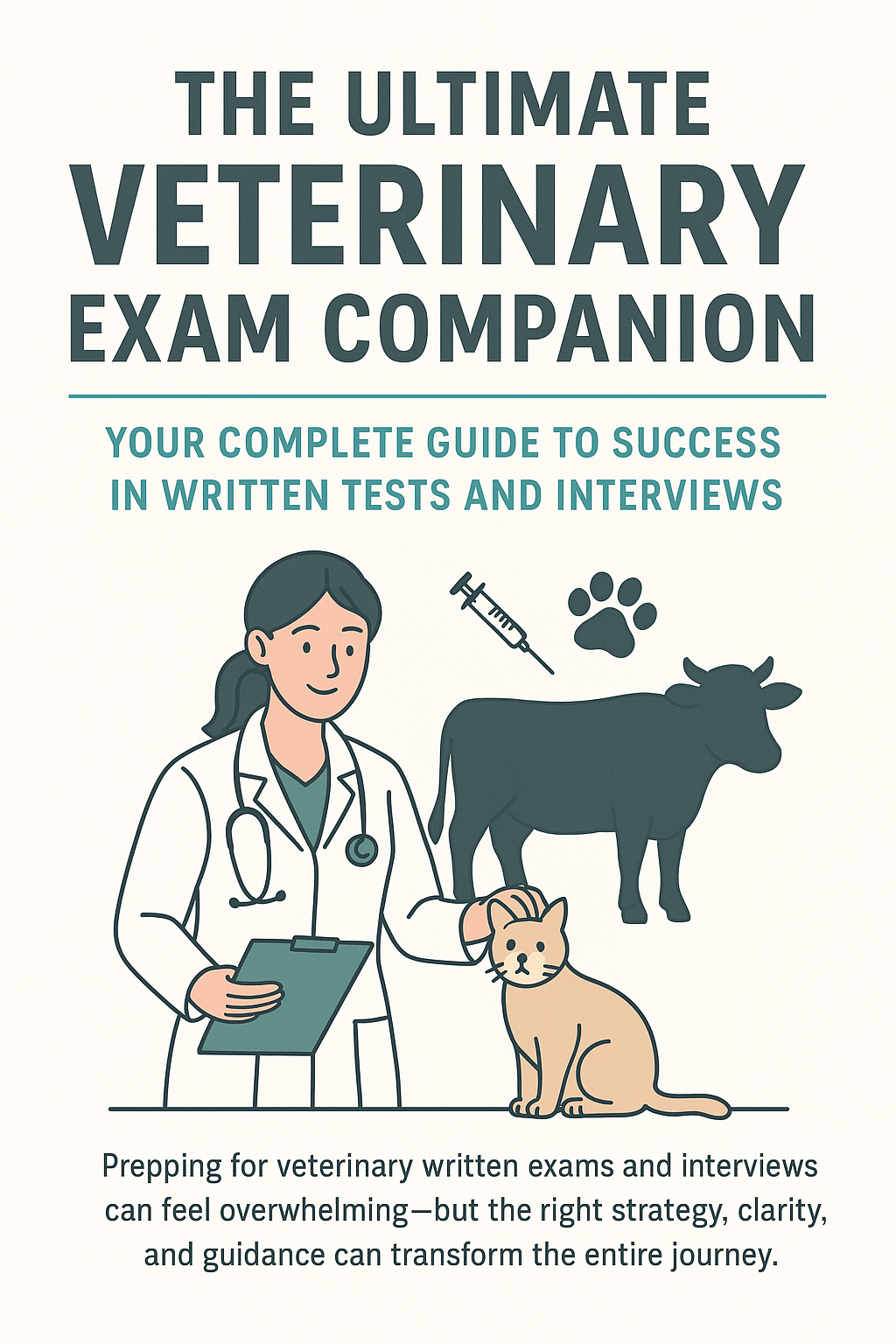
6. Veterinary Capsule 2025 Edition: Comprehensive Guide to Veterinary Medicine, Surgery, Anatomy, Microbiology, Pathology & Poultry Diseases
The *Veterinary Capsule 2025 Edition* is a comprehensive, quick-reference handbook designed for veterinary professionals and students. Organized systematically, it begins with clinical therapeutics—covering fluid therapy solutions like dextrose, saline, Ringer’s, and lactated Ringer’s, including their specific indications and contraindications. The guide then delves into foundational sciences such as anatomy, histology, and microbiology, providing essential terminology, structural classifications, and key physiological values across species. A major focus is placed on veterinary medicine and pathology, detailing physical examination methods, diagnostic techniques, and metabolic disorders like milk fever, ketosis, and bloat. The manual extensively catalogs infectious diseases—bacterial (anthrax, brucellosis, mastitis), viral (FMD, rabies, Newcastle disease), parasitic, and fungal—with notes on etiology, clinical signs, pathognomonic lesions, and treatment protocols. Special sections address poultry diseases, zoonoses, and epidemiology. Pharmacology is well-covered, listing antibiotics, anthelmintics, antifungals, and vaccines, along with drug classifications and preferred treatments for common conditions. Practical appendices include surgical sutures, injection sites, prescription abbreviations, and conversion tables. Designed for field and clinical use, this edition serves as an invaluable, all-in-one resource for diagnosis, treatment, and daily veterinary practice.
PDF Attached
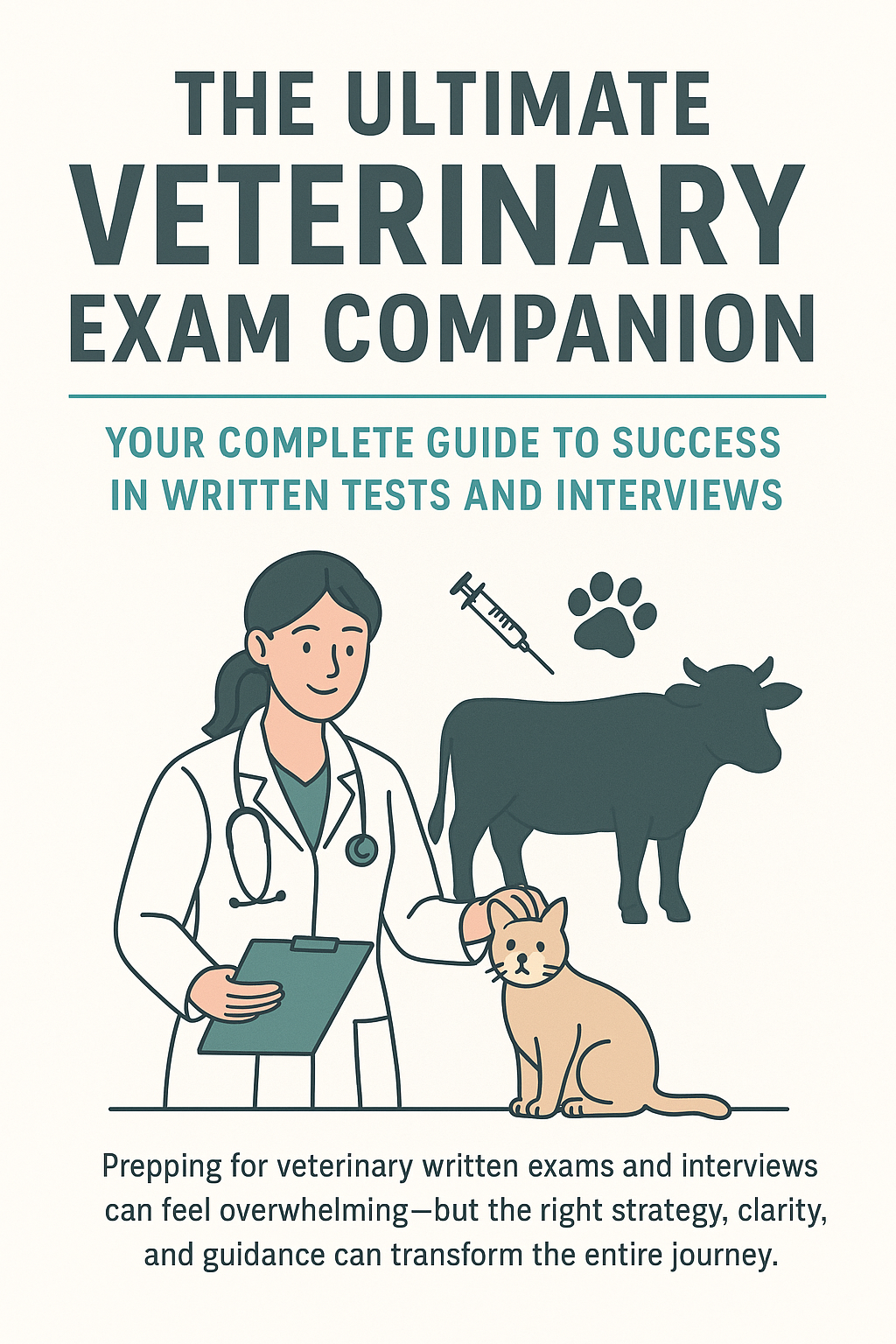
7. The Ultimate Veterinary Exam Companion: Your Complete Guide to Success in Written Tests and Interviews
Embark on your journey to becoming a skilled veterinarian with the Veterinary Capsule 2025 Edition, a meticulously compiled manual designed to empower aspiring veterinary professionals. This comprehensive guide, supervised by Dr. Hassan Junaid and curated by a team of accomplished experts, covers both subjective and objective content essential for acing written examinations and interviews. From foundational topics like Animal Nutrition, Physiology, and Pharmacology to specialized areas such as Surgery, Reproduction, and Dairy Science, this capsule leaves no stone unturned. Structured for clarity and ease of use, it includes key data, comparative charts, clinical protocols, and updated references—all tailored to meet the demands of competitive veterinary exams. Whether you're reviewing Livestock Production, mastering Parasitology, or navigating complex case studies, this guide serves as your trusted companion for structured learning and confident preparation. Drive your growth and success in the digital age with a resource built by veterinarians, for future veterinarians.
PDF Attached
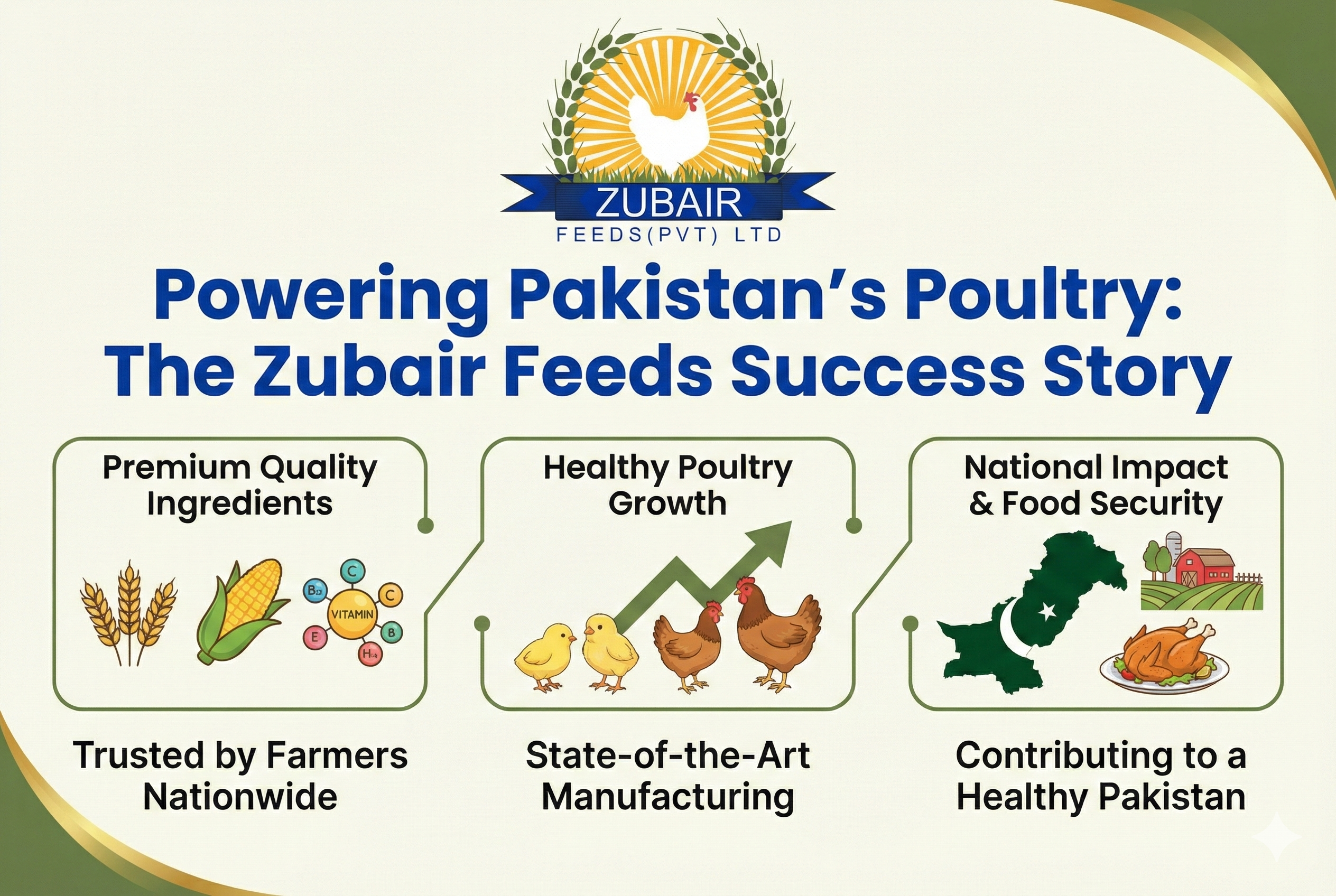
8. Powering Pakistan’s Poultry: The Zubair Feeds Success Story
Zubair Feeds (Pvt.) Ltd. is one of Pakistan’s emerging and trusted names in the poultry nutrition industry, committed to producing high-quality, scientifically formulated feed that ensures healthy growth, improved immunity, and superior performance in broilers, layers, and breeders. Based in Rawalpindi, the company delivers excellence through modern feed-milling technology, rigorous quality control, and a strong focus on animal welfare and farmer profitability. With a team of experienced nutritionists, veterinarians, and poultry experts, Zubair Feeds develops balanced feed formulas enriched with essential proteins, amino acids, vitamins, and minerals. The company ensures consistency, freshness, and nutrient stability by using premium raw materials and adopting global feed safety standards. Zubair Feeds works closely with poultry farmers across Pakistan, providing not just feed—but technical guidance, farm support, and nutritional consultancy to help them achieve better FCR, optimal growth rates, and higher productivity. Whether for commercial broiler production, layer farming, or backyard poultry, Zubair Feeds stands out for its reliability, innovation, and farmer-focused approach. Contact: 📧 info@zubairfeeds.com 📞 +92 320 5002021 🏠 House No.30-C, Iran Road, Near Chandni Chowk, Satellite Town, Rawalpindi, Pakistan
PDF Attached
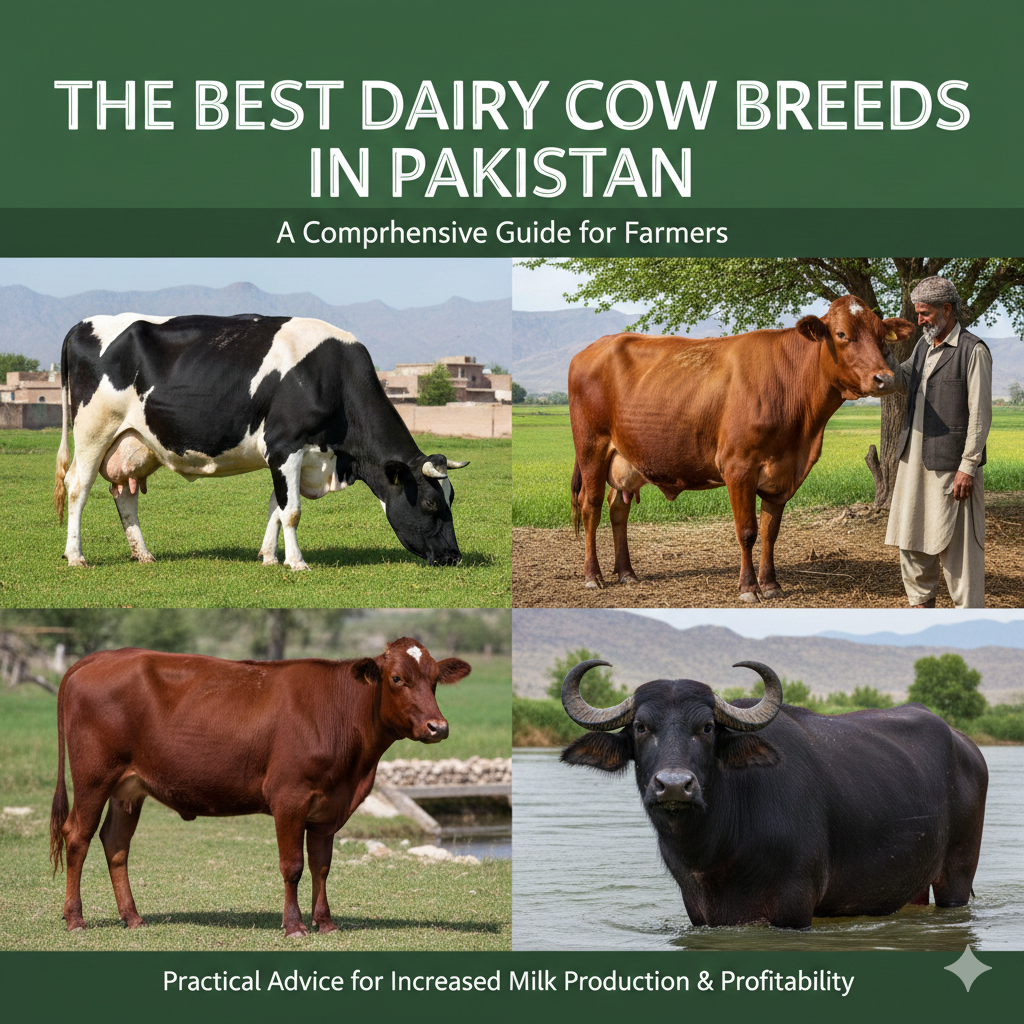
9. The Best Dairy Cow Breeds in Pakistan: A Comprehensive Guide for Farmers
Best Dairy Cow Breeds in Pakistan: A Quick Guide Choosing the right dairy breed is crucial for profitability in Pakistan’s climate. The top contenders are: 1. Sahiwal (The Indigenous Champion) Pakistan’s pride, perfectly adapted to heat and disease. It produces 2,000-3,000 liters of high-fat milk (4.5-5.5%) per lactation on local feed. Ideal for small to medium farms due to low maintenance, high disease resistance, and excellent heat tolerance. 2. Holstein-Friesian Crossbreeds (The High-Yield Option) A cross between exotic Holsteins and indigenous Sahiwal or Red Sindhi. This popular compromise offers 3,000-4,500 liters per lactation. It yields more than pure indigenous breeds while maintaining better heat and disease resistance than pure Holsteins. Requires more intensive feed and management. 3. Red Sindhi (The Reliable Hardy Breed) Native to Sindh, it is highly heat-tolerant and disease-resistant. Yields a reliable 1,800-2,500 liters of good-quality milk. Its smaller size and docile nature make it perfect for smallholder farmers with limited resources. 4. Cholistani (The Desert Specialist) Thrives in arid regions like Cholistan and Balochistan. While milk yield (1,800-2,500 liters) is moderate, its exceptional drought resistance and ability to graze on sparse vegetation are unmatched for challenging environments. Verdict: For most Pakistani farmers: The Sahiwal is the best all-rounder. For commercial farms with good management: Holstein-Friesian Crossbreeds offer superior yields. For smallholders in hot, arid areas: Red Sindhi or Cholistani breeds are the most sustainable choice. Selecting the right breed depends on your location, management capability, and investment level.
PDF Attached

10. The Ultimate Guide to Buying Day-Old Chicks (DOC) in Pakistan: A Lucrative Poultry Opportunity
Purchasing day-old chicks (DOC) is the foundational step in Pakistan's vital poultry industry. For entrepreneurs, this decision unlocks opportunities in broiler (meat) or layer (egg) production, catering to the nation's growing protein demand. Key Considerations: Start by defining your goal. For rapid 6-week meat cycles, choose fast-growing broiler breeds like Ross 308. For year-long egg production, opt for reliable layer breeds like Hy-Line Brown. Source your DOC from reputable Pakistani hatcheries with strict biosecurity and proven breeder flock health. Current DOC rates in Pakistan fluctuate, but broiler chicks typically range from PKR 90-130 each. Critical First Steps: Prepare a clean, warm brooding area (32-35°C) with ready feed and water. Upon arrival, check chicks for activity and uniformity. Provide electrolytes initially and monitor closely. Success hinges on proper brooding management, a strict vaccination schedule, and quality nutrition. Economic Potential: With proper management, a 1000-bird broiler cycle can yield a net profit, though margins depend on feed costs and market prices. Despite challenges like disease risks, poultry farming in Pakistan remains a profitable venture. Start small, build relationships with suppliers, and prioritize chick quality for a sustainable operation.
PDF Attached